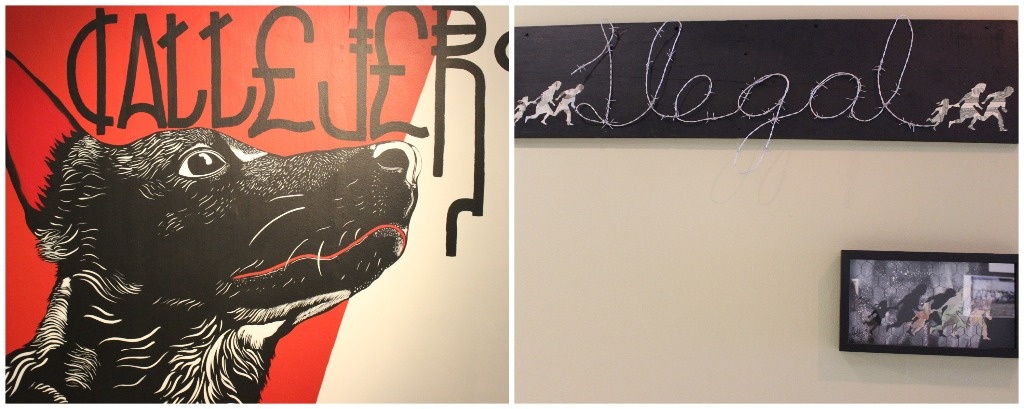The interview with Vlocke Negro takes place in an unusual situation: while clandestinely making pints on a train in broad daylight. So it is necessary to be careful not to be caught (as it is said colloquially, to be discovered) and, if that happens, run away as fast as your legs allow you.
This is a usual action for him and one of the main lines of his work, beyond the world of galleries and cultural spaces where he exhibits his artistic work in conventional schemes, which is also social, critical and rebellious against the system, as he reaffirms in the exhibition that he presents until May 12 at the José María Velasco gallery, in the heart of the rough neighborhood of Tepito (Peralvillo 55, Morelos neighborhood).
Crack is a retrospective of around 70 pieces – including engraving, painting, installation, video, mural and lithography – that reflect the two decades of the career of this political scientist, born in 1981 in Ciudad Nezahualcóyotl, state of Mexico, in the heart of from a family that migrated from the Oaxacan Mixtec.
Globalization, migration, injustice, social inequality and gentrification, as well as climate change, are some topics that he addresses with his proposal, based largely on the aesthetics emanating from social movements – with the predominance of graphics and the colors red and black – as well as graffiti and, in general, urban art.
It is an art of resistance
summarizes the artist, who is reluctant to reveal his name, as well as to show his identity publicly. I continue doing clandestine work, that’s why I take care of myself; It’s part of the areas where I move, you never know, right? You have to keep a low profile. Maybe we’re going to have to make a revolution for water
he argues.
He explains that he returned to his pseudonym from his student years at the Faculty of Political and Social Sciences of the National Autonomous University of Mexico (where he was an activist in the 1999 strike), when the anti-globalization or globaliphobic movement was in full swing and became more visible a street demonstration tactic called black block
developed in the 80s of the last century in Europe, especially in anti-nuclear protests, in which participants wear black clothing and cover their faces to avoid being identified by the authorities.
Art is for me a window of expression, a way to reflect and participate politically also in the social sphere. Yes, I believe that art is a trench, a tool for social change.
underlines Vlocke Negro to answer why he does not practice his training as a political scientist in a conventional or more academic way.
“I am very linked to social movements, to indigenous peoples, to countercultural movements. I’m from the city Well; So I have also had to deal with the migration process even from my own family, of living with relatives who are in the United States, and I myself was a migrant for a time in Europe. My parents are from a town in the Mixteca region where there is nothing else to do but leave. That is why I am interested in these types of topics and the feeling that I try to convey with my work.”
Crack It is the continuation of the sample Fissures (presented at La Santísima Galería, in the city of Oaxaca), with whose titles the artist wanted to highlight that, in these times when the great revolutions and the great social movements seem to have passed
this form of art is a way of gradually breaking down the system.
I feel that those of us who are doing this type of work and movement are cracking, we are like a kind of trickle, a bit to challenge the system and make people reflect. In that sense, I identify with the concepts of breaking and breaking, although without considering that we are making a massive revolution, but individually cracking the system.
The rest time that Vlocke Negro took concludes and with him the talk. Now, to return to his pints on the train, waiting to finish them, but not before clarifying that the apparent contradiction of exhibiting and putting his work up for sale even on social networks has no other purpose than to gather resources to survive and finance its clandestine side.
#Vlocke #Negros #art #trench #tool #social #change
– 2024-04-06 21:13:03
